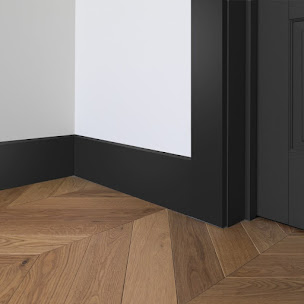Plastic Grating vs. Traditional Grating Materials: Which Is Best?
With regards to choosing grating materials for numerous programs, the determination regularly reduces right down to an evaluation between Plastic Grating and conventional grating substances, comprehensive of metallic or aluminum. Every sort has its blessings and drawbacks, making the determination subject to exact mission requirements, comprising of load-bearing potential, environmental circumstances, and long haul renovation concerns.
Traditional Grating Materials
They are much of the time utilized in projects where a great deal of power and soundness is expected of them. Advantages of Traditional Grating:
- Mechanical Benefit: Steel and aluminum gratings convey significant resistance to weighty loads and give the ideal effectiveness in working under different states of the business sectors. The advantage of large weights, which don't curve or break, is an extraordinary help they can give.
- Fire Resistance: Gratings produced using metal are less inclined to being affected by fire contrasted with plastic ones which is reasonable for places that require prompt activity for avoidance of fire dangers. Recyclability: Both steel and aluminum are recyclable thus the objective of decreasing contamination and improving manageability in the assembling processes.
Disadvantages of Traditional Grating
Corrosion Issues: Metal grating responsible to rust and corrosion, particularly in muggy or destructive conditions. Protective coatings can augment their life expectancy yet add to upkeep charges.
Weight: The heavier idea of metal grating can growth transportation and set up costs, making it substantially less positive for sure packages.
Plastic Grating
Plastic Anti Slip Grating, frequently produced using fiberglass reinforced plastic (FRP) or polypropylene, has acquired reputation on account of its light-weight nature, corrosion resistance, and occasional assurance requirements. Its design capacities a network like shape that allows for satisfactory drainage while providing a solid walking floor.
Advantages of Plastic Grating
- Corrosion: One significant strength of the plastic gratings is their capacity to oppose rust and corrosion which is a critical benefit over the metallic gratings. This one is particularly reasonable for regions that are more tropical and regions where synthetic cycles have high dampness levels, incorporating ports with high stickiness.
- Lightweight: Contrasted and different materials which for instance incorporate steel and aluminum, plastic grating can be altogether lighter than the comparative weight metal grating. This infers that it additionally involves lower difficult work charges and quicker reaction times.
- Low Maintenance: Nonetheless, the plastic grating has the most un-protective covering since the metal gratings does. Thus, the organization is currently in a place of independence from delivering or giving unique plans to forestall rust or corrosion as much as to give a unique arrangement, in this manner diminishing costs over the course of the years for the life span.
- Safety Features: These Grating product, accordingly, have slip-safe surfaces which help to increment assurance against slips and falls, particularly in wet or slick circumstances, which would be valuable in workplaces.
Disadvantages of Plastic Grating
- Load-Bearing Capacity: As shown in the clarification over the essential issue of plastic mesh load-bearing capacity to help the weight of weighty materials can be noted yet it misses the mark contrasted with different materials that incorporate metal and aluminum. Besides, a disadvantage for the people have weighty hardware and vehicles as one model.
- UV Degradation: It is realized that sun openness can prompt the breakdown of plastics into sharpness and loss of solidarity after some time. The expense of an item is consistently one extra; this is because of UV adjustment, however it is a cost to pay.




Comments
Post a Comment